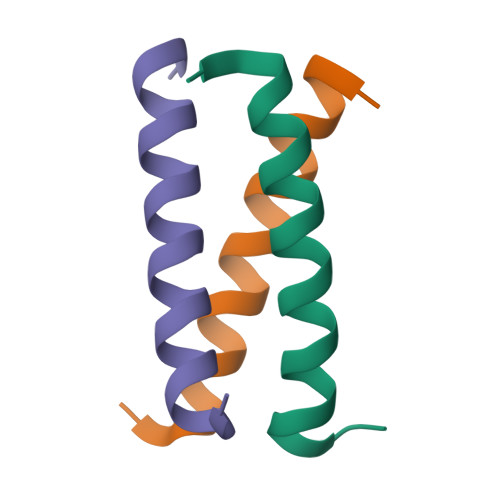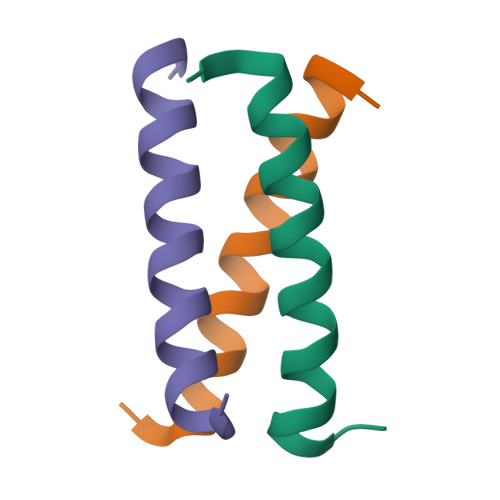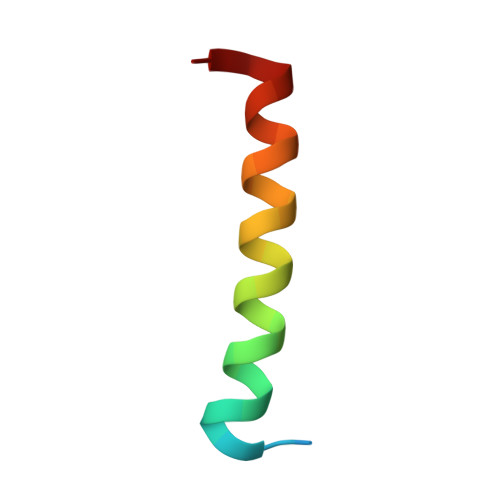Crystal structure of a trimeric form of the K(V)7.1 (KCNQ1) A-domain tail coiled-coil reveals structural plasticity and context dependent changes in a putative coiled-coil trimerization motif.
Xu, Q., Minor, D.L.(2009) Protein Sci 18: 2100-2114
- PubMed: 19693805
- DOI: https://doi.org/10.1002/pro.224
- Primary Citation of Related Structures:
3HFC, 3HFE - PubMed Abstract:
Coiled-coils are widespread protein-protein interaction motifs typified by the heptad repeat (abcdefg)(n) in which "a" and "d" positions are hydrophobic residues. Although identification of likely coiled-coil sequences is robust, prediction of strand order remains elusive. We present the X-ray crystal structure of a short form (residues 583-611), "Q1-short," of the coiled-coil assembly specificity domain from the voltage-gated potassium channel Kv7.1 (KCNQ1) determined at 1.7 A resolution. Q1-short lacks one and half heptads present in a previously studied tetrameric coiled-coil construct, Kv7.1 585-621, "Q1-long." Surprisingly, Q1-short crystallizes as a trimer. In solution, Q1-short self-assembles more poorly than Q1-long and depends on an R-h-x-x-h-E motif common to trimeric coiled-coils. Addition of native sequences that include "a" and "d" positions C-terminal to Q1-short overrides the R-h-x-x-h-E motif influence and changes assembly state from a weakly associated trimer to a strongly associated tetramer. These data provide a striking example of a naturally occurring amino sequence that exhibits context-dependent folding into different oligomerization states, a three-stranded versus a four-stranded coiled-coil. The results emphasize the degenerate nature of coiled-coil energy landscapes in which small changes can have drastic effects on oligomerization. Discovery of these properties in an ion channel assembly domain and prevalence of the R-h-x-x-h-E motif in coiled-coil assembly domains of a number of different channels that are thought to function as tetrameric assemblies raises the possibility that such sequence features may be important for facilitating the assembly of intermediates en route to the final native state.
Organizational Affiliation:
Cardiovascular Research Institute, University of California, San Francisco, 94158-2330, USA.
















